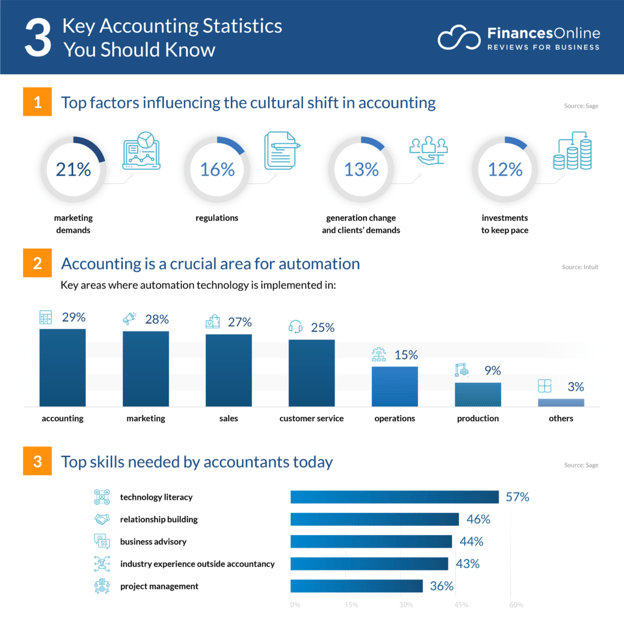Starting a new business is a pretty exciting time for any new business owner. The idea that they are beginning something great empowers them to work their hardest and do their very best to have a successful business. These first few moments as a new business owner are exciting times, however, they may cause the business owner to underestimate the importance of having good accounting practices in place from the very start.
Keeping a business budget, tracking purchases and sales while continuously being creative and resourceful are all important parts of a successful business. The most important aspect, however, is knowing how to take care of the company’s financial information. Lack of financial knowledge could mean great risk to a new business owner.
Starting any new business is a feat in itself. Between marketing campaigns and creating a brand identity for your new business, worrying about the finances tends to be at the back of a new owner’s mind.
While this is true, knowing what not to do is helpful in making sure the new business owner will start off successfully. Below are 7 common accounting mistakes that new business owners make and what can be done to avoid them.
1. Not keeping track of how much should be billed
When starting a new business, many business owners are uncertain how much they should charge for their services. Initially, setting a price that they feel is fair seems like a good idea, but when they are in the midst of the project, they realize that they may not have billed the client sufficient hours for what their actual work ends up being.
2. Not separating personal and business expenses
Business and pleasure should never be mixed – especially when it comes to a new business owner’s finances. It may seem pretty harmless to run the company card for groceries or something personal while online shopping, however, not keeping the two separate is a recipe for disaster.
New business owners should always make sure they keep personal and business expenses separate. Business bank accounts and bank cards should be opened before the first service is given or the product is sold to make sure that things start off correctly. This will ensure that tracking monthly and yearly expenses will be very straightforward to do.
Always remember the golden rule when starting a new business- pay for the best you can afford when it comes to tax professionals, and lawyers.
Your money is always made up for with how much they save you in the long run. As you are just starting out in your business, hiring a great tax consultant will make sure you are doing things by the book and saving wherever you can as well.
3. Failure to keep an emergency fund
Investing everything and not keeping some savings is always a bad idea. No one knows what is to come and cutting finances so short that the business does not have anything saved at the end of the month is a terrible idea. Every new business owner should make sure they are setting enough money aside that would cover unexpected expenses such as a high electric bill, or loss of merchandise, among other things.

4. Only worrying about sales instead of profit
Many new business owners initially fail because they become so excited about their sales funnels, that they forget to consider their profit. Sales are, in reality, very different than profit and it is essential that every new business owner knows the difference.
How to calculate a profit margin
A good businessperson must be able to set profit margin goals for themselves. It may sound complex, but all they must do is track the total cost (also known as cost of goods sold) of the product which should include the price, packaging and shipping costs, overhead costs (labor, utilities, etc.) and commissions then subtract the total cost from the price (also known as revenue) sold. The remainder is the gross profit which should then be divided by the price sold.
Every business must decide what they consider a good profit margin. Things such as capacity and the amount of work it takes to create something, among other things should all be considered when establishing profit margin ranges.

5. Failure to save receipts
New business owners should understand how important keeping track of all expenditures is for accounting purposes. Even though it may seem so frustrating to have to keep up with documentation, there are programs available to help with document tracking.
Which receipts should a new business keep?
New business owners may feel at a loss for which receipts should be kept or not. Therefore, the practice of keeping more than they think they might need may come in handy in this scenario instead of getting to the end of the year and realizing they might have kept some additional, important receipts.
According to the IRS, some key receipts that should always be kept are:
- Gross receipts- the income received from a business.
o Cash register tapes
o Deposit information (cash and credit sales)
o Receipt books
o Invoices
- Purchases – items that are bought to sell to customers.
o Canceled checks or other documents showing proof of payment/electronic funds transfer
o Cash register tape receipts
o Credit card receipts and statements
o Invoices
- Expenses – costs that are needed to keep the business running.
o Canceled checks or other documents showing proof of payment/electronic funds transferred
o Cash register tape receipts
o Account statements
o Credit card receipts and statements
o Invoices
- Travel, Transportation, Entertainment and Gift Expenses
- Assets such as furniture or machinery that were purchased for the business
6. Inadequate financial planning
Every business owner should have an end goal. To achieve their goals, however, they need to make sure they are adequately planning for upcoming expenses and business ventures.
It is important for new business owners to keep track of how much is coming in and how much is going out of their business. Truthfully, expenses should always be evaluated to be certain that the finances are doing well. If a new business owner fails to track how much they are actually spending and receiving, they could merely think the business is doing well when they might actually need to be adjusting some things to stay on track with their financial goals.
7. Incorrectly managing billing
Not keeping up with invoicing or billing, and not knowing when and how to charge sales tax, can quickly become a very serious problem. Late fees, interest, and penalties can quickly add up taking away from the new business owner’s revenue. Knowing how to effectively pay upcoming bills and keep up with upcoming expenditures will ensure there is a good cash flow so the owner does not have to worry about incoming bills.
Simple things such as setting up auto-pay, or leaving reminders on the calendar for upcoming bills will help the new business owner make sure they are not forgetting any bills that they must pay.
The key to successfully starting any new business
The truth is that starting a new business is always hard.
A lot of work, sleepless nights, and worry are behind every business opening. To best prepare themselves for starting a new business, every new business owner should set their company up for success by having good financial planning, excellent programs for workflow management and time and billing, as well as good practices in place for billing and expenses.
The key to successfully starting any new business is research and preparation before the business begins. Having good accounting practices in place and knowing what not to do are essential to the success of a new business.
Looking for more content about accounting? Subscribe to our blog newsletter today.

Freya is a personal finance expert and founder of the CollectingCents website that teaches readers how to grow their passive income, save money, improve their credit score, and manage debt. She has been featured in publications like Business Insider, Fox Business, the Huffington Post, and GoBankingRates.
READ MORE BY Freya







Get Our Latest Updates and News by Subscribing.
Join our email list for offers, and industry leading articles and content.